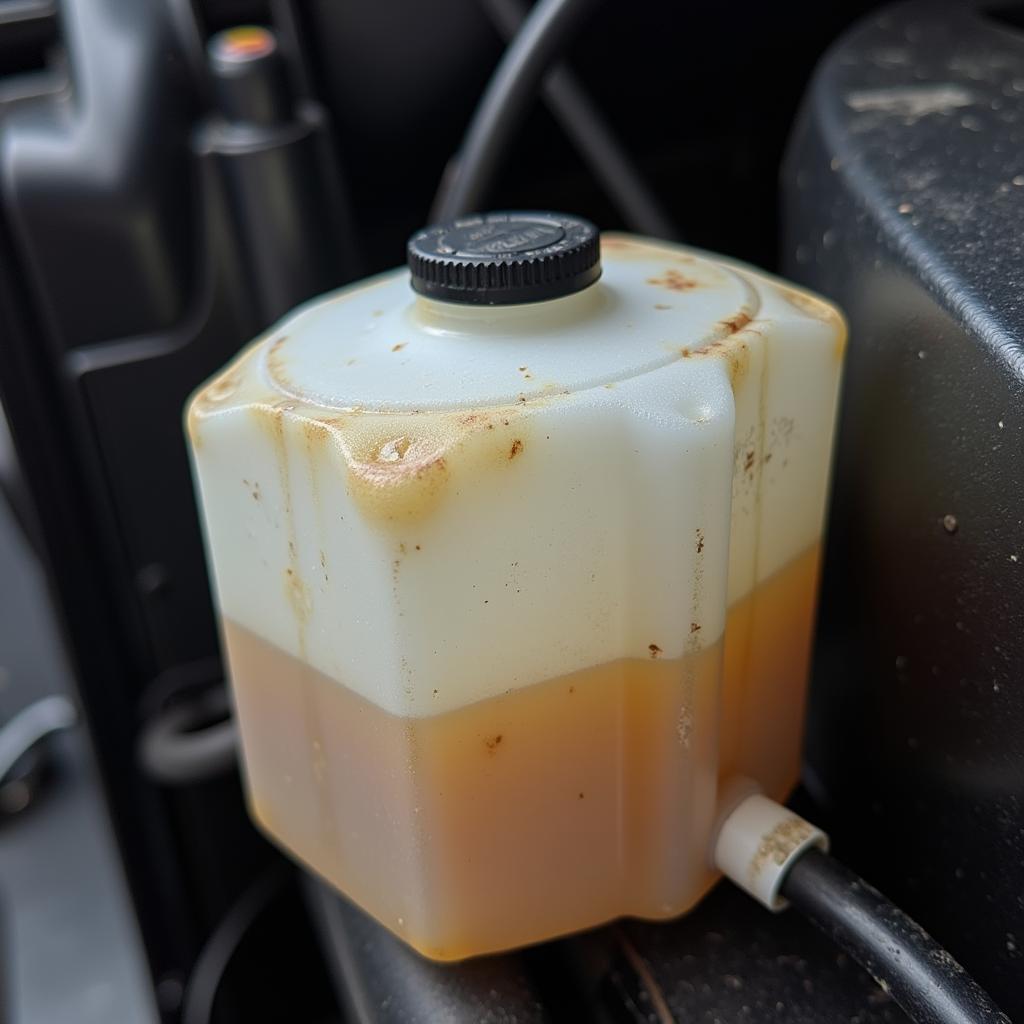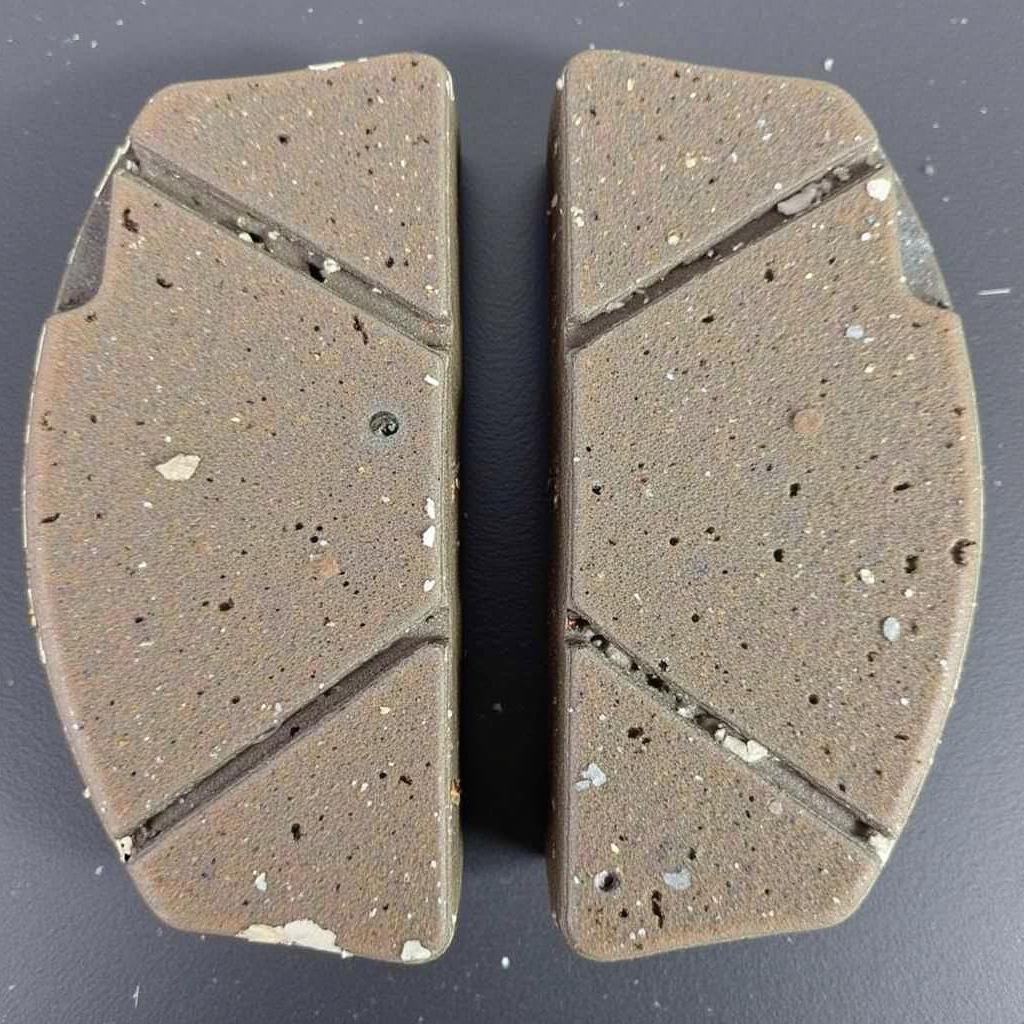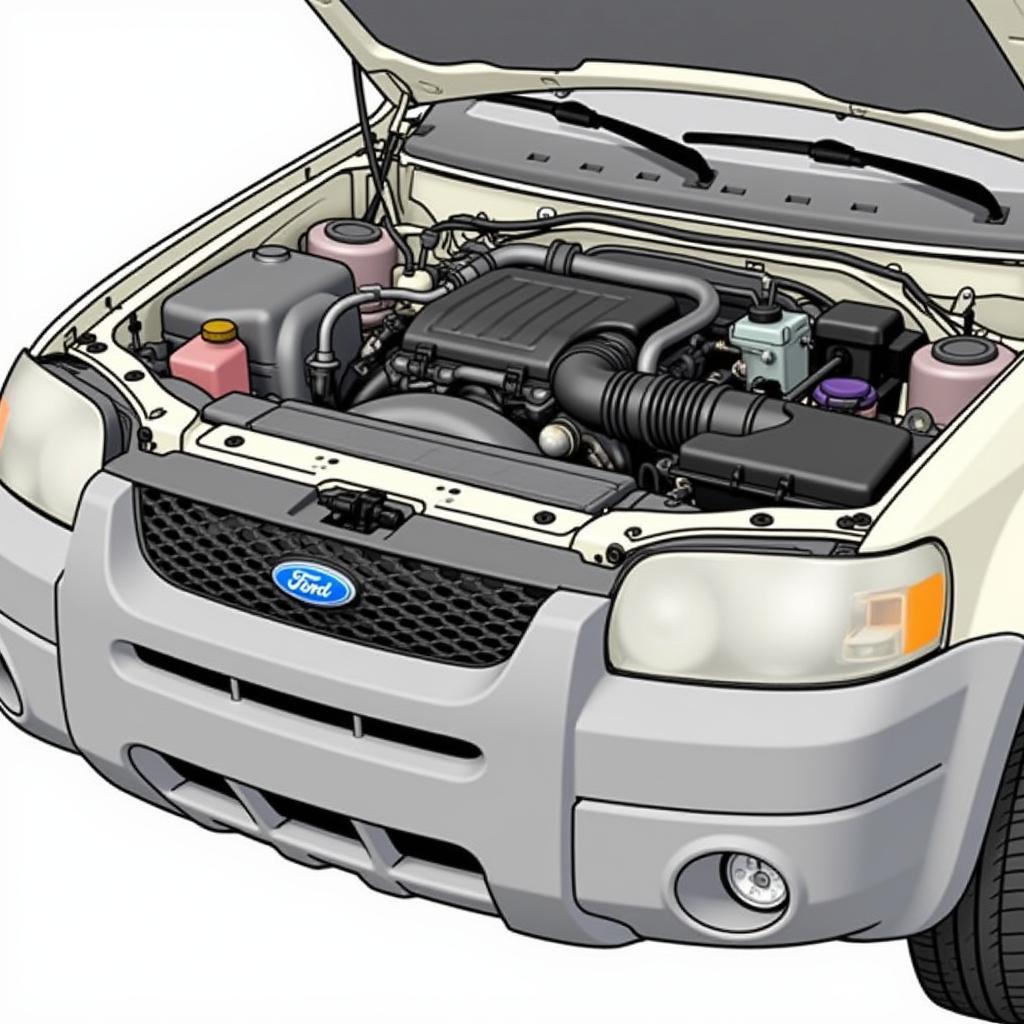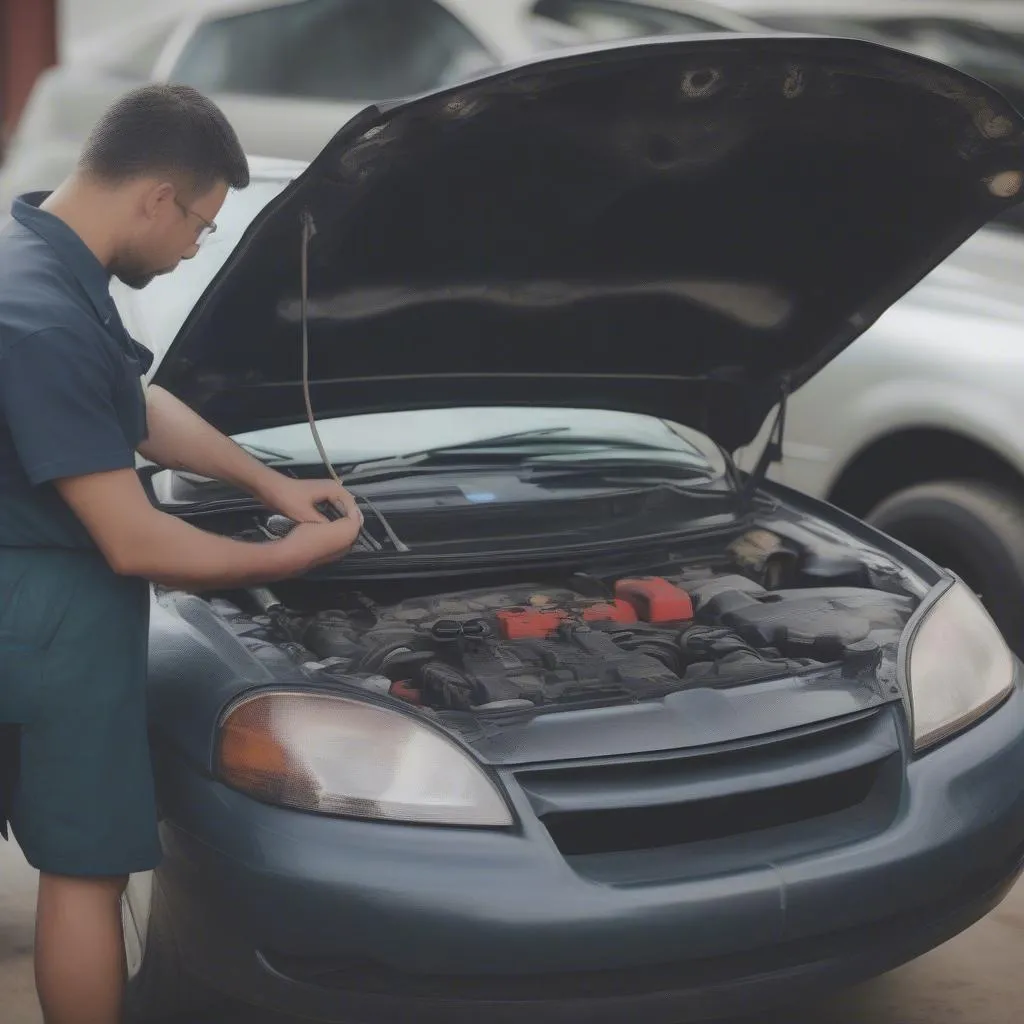The brake warning light on your dashboard is a safety critical system designed to grab your attention if a problem with your braking system is detected. So when that pesky light illuminates on your 2001 Ford Escape, it’s understandably concerning. While a simple issue like a disengaged parking brake is often the culprit, it could also signal something more serious. This comprehensive guide will help you understand the common causes behind a 2001 Ford Escape brake warning light and provide potential solutions to get you back on the road safely.
Understanding Your Ford Escape’s Brake System
Before we dive into the causes, it’s helpful to have a basic understanding of how your Ford Escape’s brake system works. The system is comprised of several key components including:
- Brake Pedal: This is your point of contact for engaging the brakes.
- Brake Booster: This amplifies the force you apply to the brake pedal, making braking easier.
- Master Cylinder: This component converts brake pedal force into hydraulic pressure.
- Brake Lines: These carry the hydraulic pressure from the master cylinder to the brakes at each wheel.
- Brake Calipers (Disc Brakes) or Wheel Cylinders (Drum Brakes): These components use hydraulic pressure to clamp the brake pads against the rotors (disc brakes) or brake shoes against the drums (drum brakes), creating the friction needed to slow or stop your vehicle.
Common Causes of a 2001 Ford Escape Brake Warning Light
The brake warning light on your 2001 Ford Escape can be triggered by various issues. Here are some of the most common culprits:
1. Engaged Parking Brake
This is the most straightforward and common reason for the brake warning light to illuminate. Always double-check that your parking brake is fully released before assuming a more serious issue.
2. Low Brake Fluid Level
Brake fluid is the lifeblood of your braking system, transmitting the hydraulic force that allows you to stop. If the fluid level drops too low, usually due to a leak, the warning light will turn on.
 2001 Ford Escape Low Brake Fluid
2001 Ford Escape Low Brake Fluid
Expert Insight: “Never ignore a low brake fluid warning. Driving with low brake fluid can severely compromise your ability to stop safely and could lead to complete brake failure,” says Jake Carter, Senior Automotive Technician at Carter’s Auto Repair.
3. Worn Brake Pads
Brake pads are designed to wear down over time. When they become too thin, a sensor within the brake system triggers the warning light.
 Worn Brake Pads on a 2001 Ford Escape
Worn Brake Pads on a 2001 Ford Escape
4. Faulty Brake Sensor
Like any electrical component, the brake sensor itself can malfunction. A faulty sensor can trigger a false warning light even if your brake system is functioning correctly.
5. ABS Issue
Your 2001 Ford Escape is equipped with an Anti-lock Braking System (ABS). If the ABS control module or a wheel speed sensor malfunctions, it can also illuminate the brake warning light.
 Ford Escape ABS Control Module Location
Ford Escape ABS Control Module Location
6. Brake Line Leak
A leak in the brake lines can lead to a loss of brake fluid and pressure, triggering the warning light.
Expert Insight: “Brake fluid leaks should always be addressed immediately. These leaks can quickly lead to a dangerous loss of braking power,” warns Jake Carter.
7. Master Cylinder Failure
The master cylinder is a vital part of the brake system, and a failing unit can lead to a complete loss of braking ability, often accompanied by the illumination of the brake warning light.
What to Do When Your 2001 Ford Escape Brake Warning Light Comes On
If your 2001 Ford Escape brake warning light illuminates, here’s what you should do:
- Safely pull over: Find a safe location to pull over as soon as possible.
- Check the parking brake: Ensure the parking brake is fully disengaged.
- Inspect the brake fluid level: If you feel comfortable doing so, carefully check the brake fluid level in the master cylinder reservoir. Refer to your owner’s manual for the location and instructions.
- Avoid driving: If the brake fluid level is low or you suspect any other issue, do not continue driving.
- Seek professional help: Contact a qualified mechanic to diagnose and repair the problem.
Conclusion
A glowing brake warning light in your 2001 Ford Escape is a serious safety concern that should never be ignored. While it might be something as simple as an engaged parking brake, it could also indicate a serious issue like a brake fluid leak or master cylinder failure. Always err on the side of caution and seek professional help to ensure your vehicle is safe to drive.

